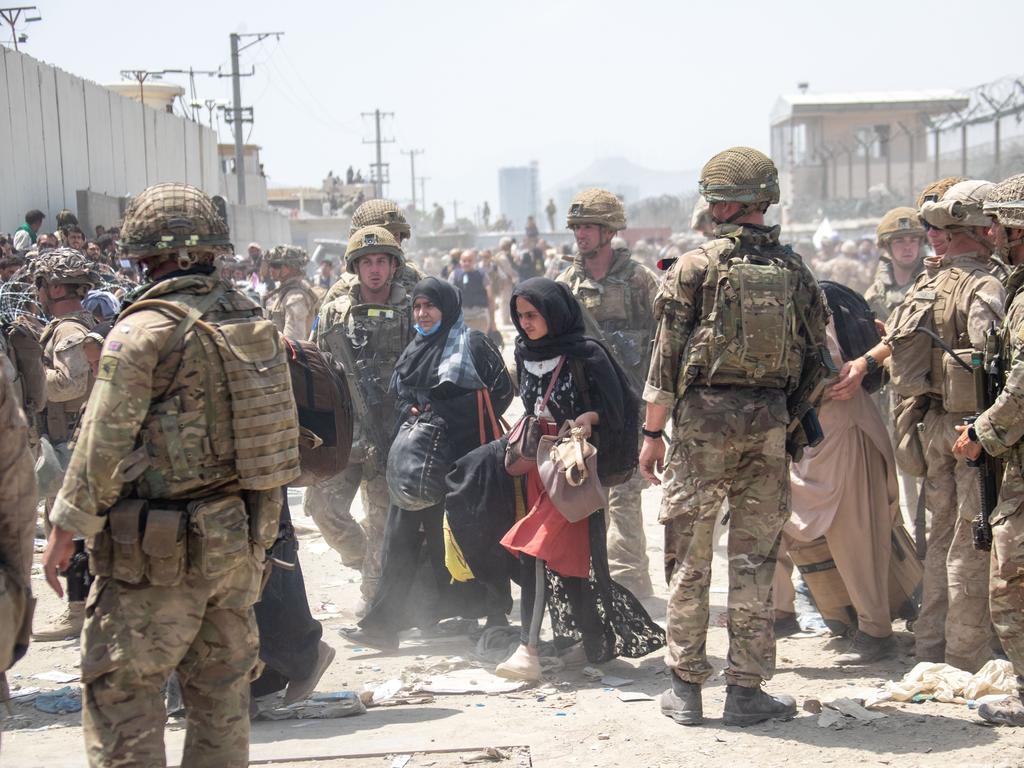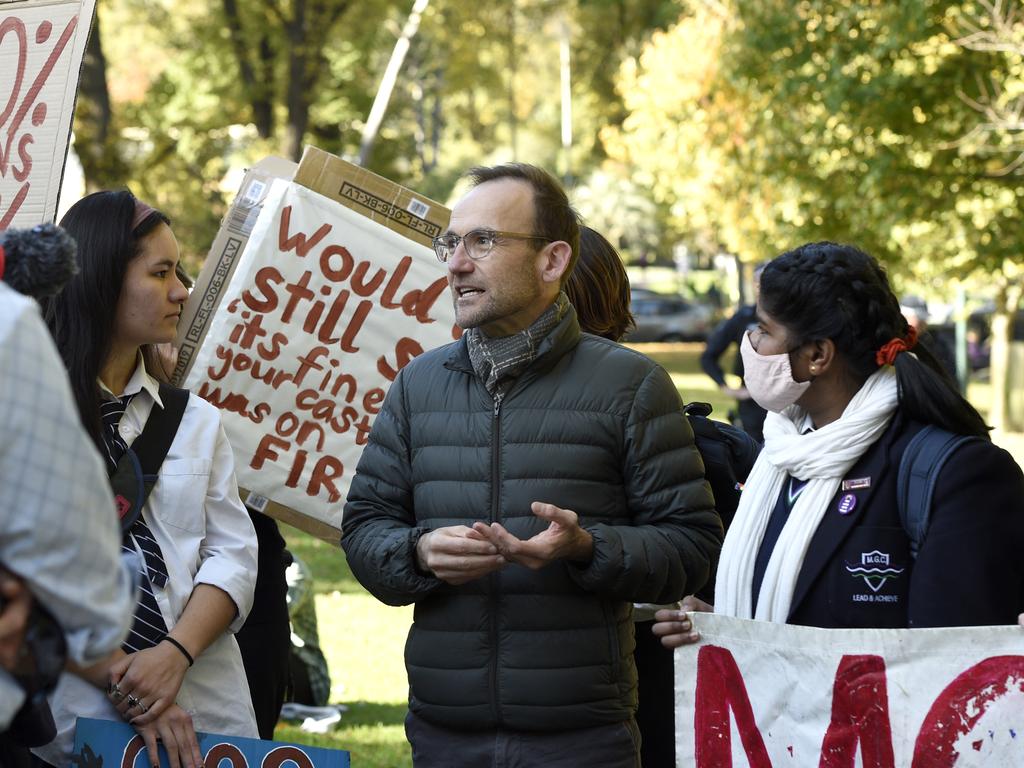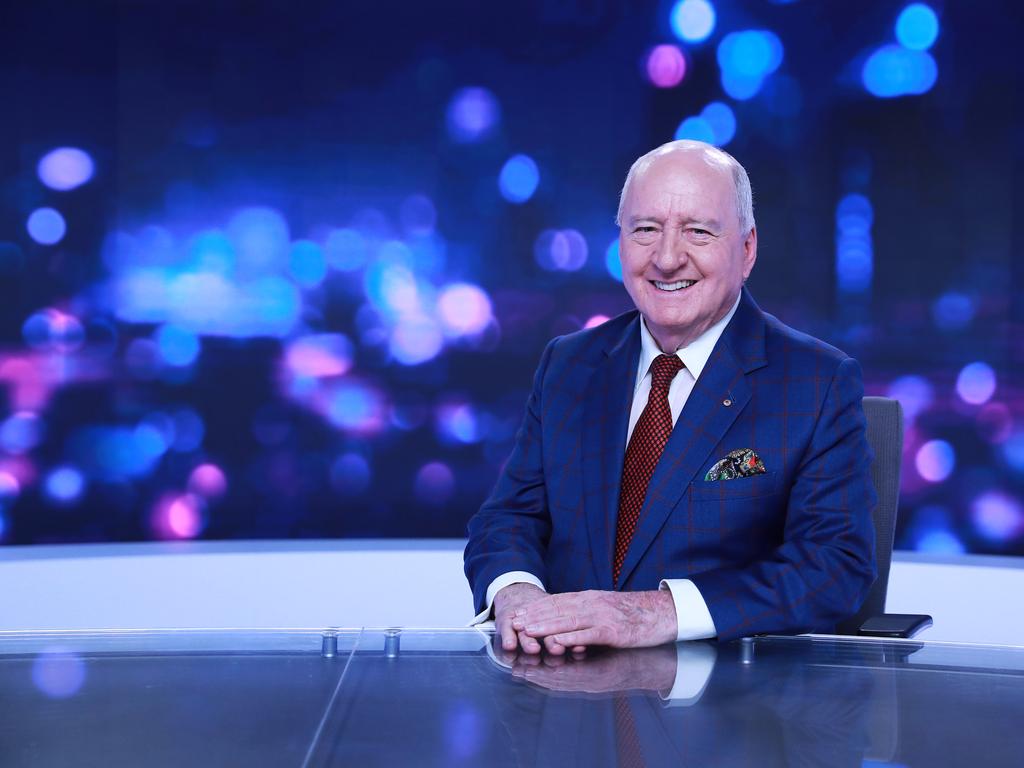Lazy ABC groupthink at heart of bias over Covid lockdowns


Think asylum seekers, climate change, criticism of conservative politicians, bagging big business, women portrayed as victims and Australia’s alleged pervasive racism. Covid-19 pandemic stories that favour continued lockdowns, give voice to overheated forecasts of health disaster or report critics of the federal government’s handling of the pandemic get free rein.
Until the present NSW Covid outbreak, and the ensuing criticism of Liberal Premier Gladys Berejiklian, there has been much less ABC scrutiny of the state premiers than of the federal government. Much of the public broadcaster’s output last year backed Victorian Premier Dan Andrews’ handling of his state’s 112-day lockdown — 820 deaths notwithstanding.
The leave pass for premiers, other than Berejiklian, continues. A good piece by Laura Tingle on 7.30 on August 23 concluded with former chief health bureaucrat Jane Halton effectively saying by early next year Sydneysiders may be able to fly to LA but not to WA. Tingle opened with a Perth radio proclamation of how good life is in WA with zero cases.
WA Premier Mark McGowan had a fortnight earlier agreed to the Doherty Institute’s model for reopening Australia, but he was not criticised for threatening to backflip. That was probably less about political bias than a common ABC view that lockdowns are good. It’s an easy assumption from reporters in privileged positions in well-paid, secure jobs.

Similar lazy assumptions sit behind the many ABC radio programs this past month in which ethnic spokespeople from western Sydney have been given airtime to claim Berejiklian has been racially insensitive in applying stricter health orders to certain suburbs. Never mind those are the suburbs where the virus is spreading fastest. Nor is mention made of the summer lockdown of the city’s white, middle-class northern beaches.
Critics think such reporting reflects the ABC’s left-wing biases. While no doubt true of some, I think unconscious assumptions and groupthink are bigger factors. Several high-profile ABC journalists regularly criticised for bias used to work happily at this newspaper or at Sky News. Not only is it difficult for such reporters to swim against the tide of internal ABC newsroom culture, journos love to be loved. Hence their look-at-me posts on Twitter.
In truth, every newsroom has its biases. Here at The Australian, the attitude to stories is informed by the newspaper’s 1964 mission statement. The Oz is concerned with the nation’s economic prosperity, power within the region and fostering improvements in education, science, business, the arts and sport.
The city-based News Corp and Nine newspapers are more engaged in reporting on and advocating for their regions. They traditionally side with premiers against federal governments. The News Corp papers focus on the concerns of working people while the former Fairfax papers are more overtly concerned with progressive social issues.
Historically, under News, The Daily Telegraph was closely aligned with southwestern Sydney and the ALP. The SMH before the 1980s was the Liberal Party paper of the establishment. As the establishment moved left so did Granny Herald.
Victoria’s Herald Sun (formerly The Sun News Pictorial, and The Herald), The Advertiser in Adelaide and The Courier-Mail in Brisbane were conservative before News Corp’s takeover in 1987 but less populist than today. The Age has always been to the left of the old Fairfax family’s products, and The Australian Financial Review has always campaigned for pro-business reforms.
They all have very different newsroom cultures. I worked for The Herald and Weekly Times in Brisbane, Fairfax’s AFR and News’s city and national papers (The Tele, The Courier-Mail and The Oz). The culture at The AFR and SMH was clubby and old school tie. At The Tele it was knockabout, hard-drinking and hard-chasing on crime, police and court stories.
What of the ABC’s news culture? In the 1950s and 60s it was very conservative. But like most media it began moving left in the late 1960s. This Day Tonight launched in 1967 and Monday Conference in 1971. TDT was the forerunner of 7.30 and Monday Conference presaged Q+A.
The end of the state-based 7.30 Report in 1995 and a focus on news generation from Sydney, Melbourne and Canberra brought a profound change for audiences. The corporation lost its once prominent role in holding state governments accountable.
The next raft of changes came under former managing director Mark Scott, who oversaw the creation of the 24-hour television news channel, the expansion of ABC TV to four terrestrial channels, the introduction of iview and the incorporation of social media, particularly Twitter, into ABC current affairs programming, starting with Q+A.
Former national 7.30 Report host Kerry O’Brien was a fiery interviewer. His confrontations with former PM John Howard are legendary. This has now evolved into a “house style’’ as young reporters adopt more combative interview techniques.
Fellow Media section columnist Nick Tabakoff wrote last week of Insiders’ host David Speers and his 26 interruptions during a feisty interview with Prime Minister Scott Morrison on August 22. Tabakoff referred to a social media pile-on ahead of the interview, critics claiming Speers would go soft on the PM.
Speers arrived at Insiders last year from Sky News where he had won two Walkley Awards for interviews. First was his December 2014 trainwreck interview with former attorney-general George Brandis about proposed new metadata laws. He won again in 2015 for “The Fixer” interview with Christopher Pyne.
Better than both was a skewering of then minister Bill Shorten in April 2012 for supporting Julia Gillard comments he had neither seen nor heard.
Have the expectations of ABC Twitter followers affected Speers? I am not sure. But listening to his June 13 interview with Greens leader Adam Bandt, Speers was almost passive. Similarly restrained was his July 11 interview with Opposition Leader Anthony Albanese. Yet when he arrived at the ABC, Speers was as tough on Labor frontbenchers as he was on government ministers.
Leigh Sales, host of 7.30, is noted for her tough questioning of both sides of politics. But like Speers, she does come to interviews with questions she is determined to ask even if the interview is going in another direction. She interrupts too much.
Ditto Sabra Lane on ABC AM. Many listeners would have thought her interview with Health Minister Greg Hunt last Tuesday outright rude. She may feel she is resisting Hunt’s determination not to be railroaded, but her comments come over as something worse.
The ABC is under pressure, and not just because of a series of over-hyped Four Corners beat-ups and bloopers. Morrison was determined last week to call out Speers’s interruptions.
Some in Cabinet believe that in ABC interviews they need to push back on incorrect assertions, and call out partisanship. ABC management needs to look at the editorial culture. Easy assumptions about moral virtue in politics would be a good place to start.







Regular consumers of ABC news know Aunty’s journalists can’t resist certain stories.